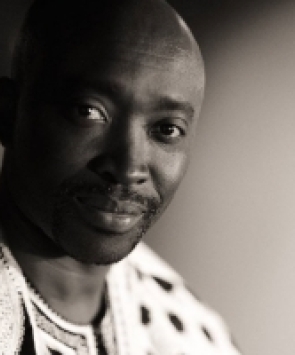
Tutu Alicante
TUTU ALICANTE received his J.D. from the University of Tennessee before earning his LL.M. from Columbia Law School in 2004. Upon graduating from Columbia Law School, Alicante received an Echoing Green fellowship which enabled him to found EG Justice, the only human rights organization focused exclusively on his native Equatorial Guinea. As Executive Director of EG Justice, Alicante works daily to promote freedom of information and the press, the rule of law, human rights and dignity, and transparency. EG Justice is especially focused on partnering with young, creative activists who use social media, theatre, comedy, hip hop, and other avenues to push back against one of the most oppressive dictatorships in the world. Until recently, Alicante had to use pseudonyms and multiple email accounts to keep himself safe. However, as international recognition compounds, he has been able to shift back to using his given name, publishing as a courageous, outspoken advocate for Equatoguinean justice in the Guardian, the Washington Post, Democracy Now!, and more.
What human rights work are you currently involved in?
I am currently running the only human rights organization focused exclusively on Equatorial Guinea. EG Justice is dedicated to calling international attention to the abuses of the dictatorial Obiang regime, characterized by systematic incarcerations, disappearances, torture, and assassination of citizens. Despite more than one billion dollars in annual oil production revenue, over 75 percent of Equatorial Guinea’s 500 million citizens live on less than two dollars a day, without access to health-care, education, and clean water. EG Justice’s mission is to work with citizens to end government impunity and advocate for lasting democratic reforms. Its diasporic network of concerned individuals and organizations demand accountability for human rights violations, raise awareness about socio-economic and political conditions in Equatorial Guinea, and ensure that the natural resource revenues of the state benefit the majority of the people in the country.
In what ways were you involved in human rights during your time at Columbia Law School?
At Columbia Law School I worked with the Human Rights Clinic, as well as with students from the School of International and Public Affairs who were fulfilling externships on Human Rights and Development.
What motivates you to be a human rights lawyer?
While Equatorial Guinea is the third-largest oil-producing nation in Africa, with a GDP per capita that is higher than that of France, or Japan. However, its half a million citizens are severely impoverished. What does that amount of wealth mean when people in my country do not have running water? What does it mean when people lack adequate healthcare? When they are tortured and wrongfully imprisoned? Where does the money go?
What advice would you have for students interested in pursuing a career in human rights?
Never give up. Finds what truly motivates you, commit to fighting to right what you see as an untenable injustice and volunteer or work for organizations that focus on that issue. Never give up.

